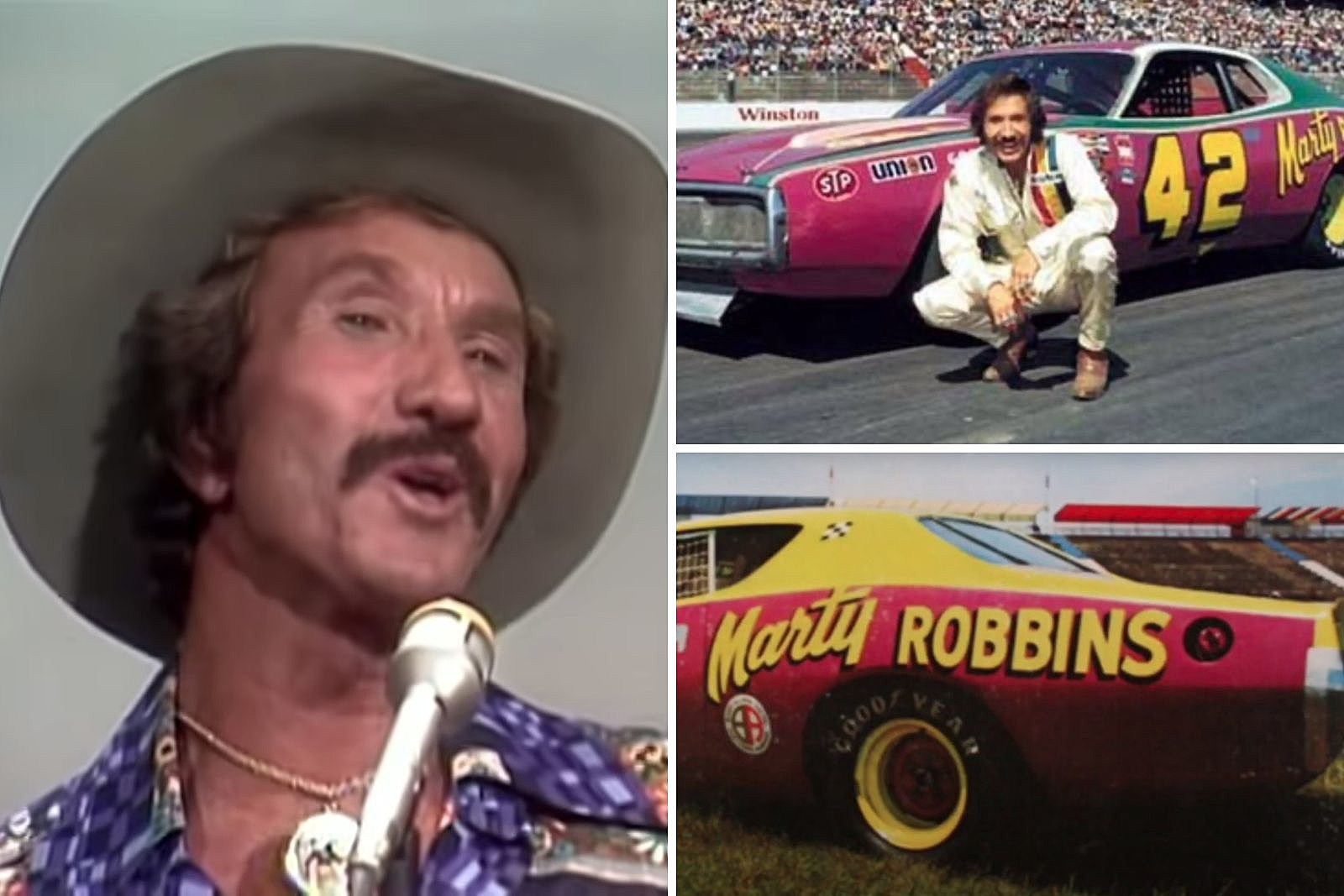
Marty Robbins, born Martin David Robinson on September 26, 1925, in Glendale, Arizona, is widely regarded as one of country music’s most influential and versatile stars. Known for his smooth baritone voice, his remarkable songwriting abilities, and his success across multiple musical genres, Robbins’ life and career were marked by both extraordinary talent and significant personal struggles.
Early Life and Musical Beginnings
Growing up in the West, Robbins was exposed to country and western music at an early age. His father, a musician himself, encouraged his son to play guitar and sing, and Marty soon found a deep love for music. As a young man, Robbins enlisted in the U.S. Navy during World War II, serving in the Pacific Theater. After the war, he returned to Arizona, where he began to hone his musical talents, playing in local clubs and radio stations.
Marty Robbins’ professional career began in the mid-1940s, but it wasn’t until the early 1950s that he made his first big breakthrough in the country music scene. His early influences included country legends like Hank Williams, and his smooth voice and innovative sound quickly attracted attention. By the mid-1950s, Robbins had signed with Columbia Records, which helped him solidify his place in the country music landscape.
The Rise to Fame
Marty Robbins’ rise to fame came in 1956 with his hit song “Singing the Blues”, which topped the country charts and made an impact on the pop charts as well. His mix of traditional country music with pop and western influences helped him stand out in an increasingly competitive industry. His smooth, rich voice and storytelling abilities were key to his success, and his style was often marked by a sense of romanticism, capturing the landscapes and feelings of the American West.
The following years saw Robbins releasing a string of hit songs, including “A White Sport Coat (And a Pink Carnation)” (1957) and “El Paso” (1959). “El Paso”, a dramatic ballad about love, jealousy, and loss, became Robbins’ signature song. It was a groundbreaking hit, reaching number one on the Billboard Country Chart and even crossing over to the pop charts. The song’s success marked a shift in country music storytelling, blending Western-style narrative with the emotional depth that made it resonate with a wider audience.
Musical Versatility and Career Success
While Robbins is best known for his contributions to country music, his musical versatility allowed him to explore many different styles. Over the years, he delved into Western, pop, gospel, and rockabilly. He even recorded several Latin and Mexican-themed songs, showcasing his ability to transcend genre boundaries. His “Gunfighter Ballads and Trail Songs” (1959) album, which included “El Paso,” became a landmark in country music for its blending of Western storytelling with cinematic musical arrangements.
Marty Robbins won numerous accolades throughout his career, including multiple Grammy Awards and Country Music Association honors. He was inducted into the Country Music Hall of Fame in 1982, solidifying his place as one of the genre’s greats. His success continued well into the 1970s and 1980s, with hits like “My Woman, My Woman, My Wife” (1970) and “The Storms Never Last” (1973).
Personal Struggles and Tragedy
Despite his professional success, Robbins’ life was not without personal struggles. He faced several challenges, including battles with alcoholism and health issues, which often took a toll on his personal life and relationships. His marriage to Marizona (Mimi) Robbins, whom he married in 1949, faced several rough patches, though the couple remained together until Marty’s death.
In 1982, Robbins suffered a heart attack, which deeply impacted both his personal and professional life. Despite this, he continued to record and perform, but his health continued to decline. Tragically, Marty Robbins passed away on December 8, 1982, at the age of 57, due to heart failure. His death marked the end of an era for country music, as he had become one of the genre’s most beloved and influential figures.
Legacy
Marty Robbins’ legacy endures through his timeless songs, his unique ability to craft vivid, cinematic narratives, and his influence on country music. His songs, such as “El Paso,” “Big Iron,” and “A White Sport Coat,” are staples of classic country music and continue to resonate with listeners of all ages. His contributions to country and Western music helped shape the genre’s sound and storytelling, blending traditional country themes with rich melodies and emotional depth.
Robbins’ influence extended far beyond the country genre. His ability to cross over into pop, Western, and even Latin music helped him appeal to a diverse audience, and his legacy remains an integral part of American music history. His storytelling abilities, combined with his versatile musical talent, made him one of the greatest pioneers in country music.
In the years following his death, Marty Robbins has been remembered for his remarkable contributions to music, his distinctive voice, and his lasting impact on future generations of country artists. His songs, often filled with themes of love, loss, and adventure, continue to evoke powerful emotions in listeners around the world, ensuring that his legacy will endure for years to come.